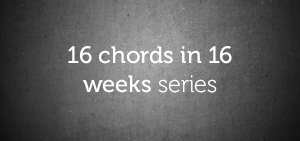When it comes to practicing, there are two types of musicians.
1) Those who sit down to their piano with no goal or objective.
2) Those who do.
I’m hoping you’re the latter.
If you’ve ever read about my “6 P’s of Productive Practice,” you know that one of the P’s is “purposed.”
Your practice time must be purposed.
A famous thought leader by the name of Stephen Covey says it best: “Start with the end in mind.”
But let’s zoom out a bit…
Not only should each practice session have a goal or desired result, but each week, month, quarter – even year – should have one.
Have you mastered all 12 keys?
If not, make this week the “Key of A” week. If a week is too short, make it a month.
Are you still playing that scale or run at the same beats per minute (BPM) as last year? Make this week “+10 BPM” week
My point is: Have a solid, crystalized goal in mind and the brain will work that much more to attain it.
Like a ship steering towards its destination, you too will eventually make it to where you’ve set out to go.
Without a destination, you wander in the ocean and ultimately sink.
Using the word “Smart” as an acronym, here are 5 components of an effective goal.
“Smart Goals”
1) Specific – Your goal should target a specific area for improvement.
This is no time to be ambiguous. Be specific, intentional, and direct about what you want to accomplish.
2) Measurable – Your goal should be quantifiable and trackable.
What good is a goal if you can’t measure your progress? There should be some indicator that clearly lets you see where you stand in relation to your desired result.
3) Assignable – Your goal should include who will do it.
This comes to play when you’re working with others but when it comes to improving your music, no one can improve your chops for you.
But in instances where you’re leading a band or working in any capacity with others, being clear on who needs to accomplish what is always important.
4) Realistic – Your goal should be something that is achievable, given the available resources.
Being fluent in all 12 keys from scratch in a single evening, or even a week, isn’t realistic.
Remember: “Rome wasn’t built in a day” and anything worthwhile will take work.
To think that you can accomplish something in days that has taken others months or even years or decades is an insult to them.
But in your realism, don’t limit yourself either. There’s definitely a fine line as there are plenty of folks who had unrealistic expectations that changed the world.
5) Time-related – Your goal should specify a time limit.
A goal is not a goal without a deadline.
Imagine an airline that could get you from Los Angeles to Tokyo but couldn’t guarantee how long it’d take. You’d probably not take that flight.
Give yourself a deadline, measure how you’re doing against that deadline, and watch your results skyrocket.
There you have it. A 5-part framework for creating GOALS the right way. Aka – “Smart Goals.”
Apply it to your music, apply it to your life.
Until next time –







Comments on this entry are closed.